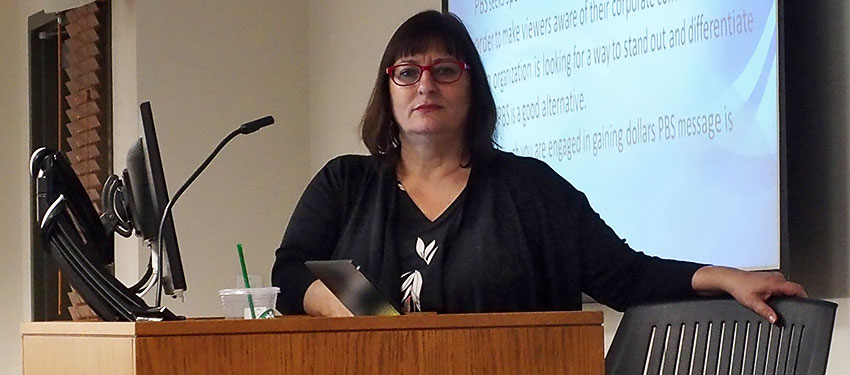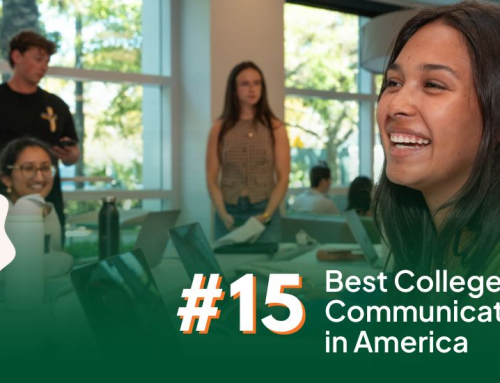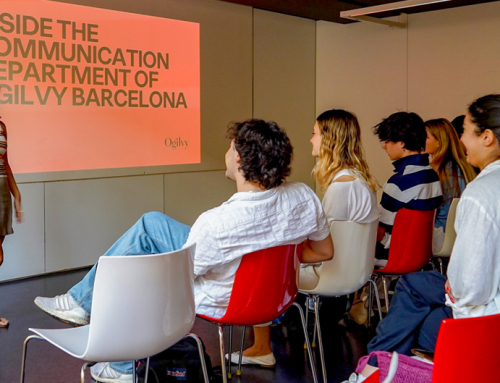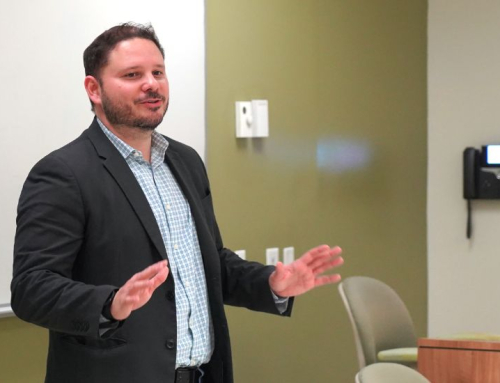On April 10, the Media Management Association hosted Heidi Lieb, senior director of business development at WPBT, to talk about the mechanism and strategies used to sell public television underwriting messages. She came to the South Florida noncommercial television station with considerable sales experience in the private sector, including a three-year stint as an account executive at ESPN.
Lieb began her presentation by describing the type of corporate culture that influences PBS operations and discussing the importance of the corporation’s established values and beliefs in approaching underwriters. Public Broadcasting Service is a noncommercial network that provides programming to affiliated stations (called member stations), such as WPBT in Miami.
Lieb noted that PBS affiliates have to follow a unique set of FCC requirements when airing underwriting messages. For instance, noncommercial stations are prohibited from promoting the products or services of the underwriter, such as mentioning prices, issuing a call for action, or engaging in comparative or qualitative claims. In addition, the Federal Communications Commission has found that such qualifying terms as efficient, excellent, economical, and dependable are overly promotional and should not be used in copy. Thus, Lieb insisted on paying close attention to the value-neutral language of each underwriting message broadcast on WPBT.
The competitive marketplace was discussed in detail during the presentation as Lieb emphasized the importance of distinguishing her station from competitors. While she acknowledged that WPBT has been able to prosper from underwriting contracts, she also stated that selling underwriting to advertisers who generally deal with commercial stations is often a hard sell. The decision to air business advertisements or not depends on a variety of factors, such as external, organizational, and functional issues. The ability to establish long-term and personal connections with local businesses is a key factor in dealing with and maintaining clients.
Lieb indicated that keeping abreast of the future programming of the station is a necessary practice to plan underwriting strategies for specific periods during the year. She also discussed how future programs could be promoted to different local advertisers based on their contents.
This presentation ultimately helped students understand the variety of efforts needed to implement and support a successful underwriting program on a noncommercial TV station.







